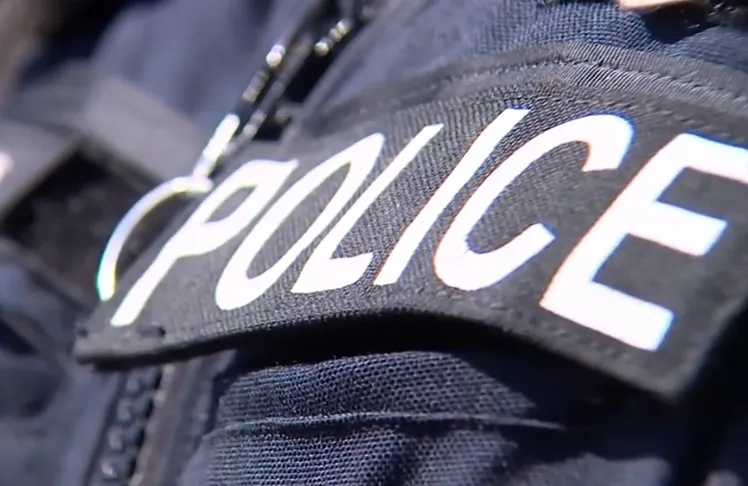
Once under federal oversight for excessive force and biased policing, the City of Seattle has officially regained local control of its police department after a federal judge ruled it had fulfilled all requirements of a 2012 consent decree aimed at overhauling unconstitutional policing practices.
U.S. District Court Judge James Robart terminated the decree, ending more than a decade of court-mandated changes to the Seattle Police Department (SPD) focused on reducing use of force, addressing racial disparities, and rebuilding public trust.
Judge Robart’s decision closes a federal case that began in 2012 after a U.S. Department of Justice investigation found SPD frequently used excessive force and disproportionately targeted people of color. The resulting settlement agreement required the city to meet hundreds of reform benchmarks under the supervision of an independent federal monitor.
Seattle Mayor Bruce Harrell called the ruling a major step forward.
“Over the past 13 years under the consent decree, the Seattle Police Department has undergone a comprehensive transformation, building one of the strongest accountability systems in the country and fundamentally changing how we approach policing,” Harrell said. “We believe that returning control of our police department to the people of Seattle is the most appropriate next step, as democratic policing works best when officers have the trust and confidence of their communities.”
Over $127 million was invested in police reform during the consent decree era. SPD implemented detailed documentation procedures for use of force, Terry stops, and allegations of bias. Supervisory and civilian oversight reviews were built into every level of officer conduct.
The department also restructured how it responds to behavioral health crises. Officers now work alongside mental health professionals in co-response teams. Since 2015, SPD has responded to more than 100,000 crisis-related calls, using force in just 1.6 percent of those interactions—a figure that has declined to 1.4 percent in recent years.
Additional reforms include scenario-based training in de-escalation and bias-free policing, body-worn cameras, and public dashboards that show data on arrests, stops, and use-of-force incidents. According to public data, SPD now reports force in just 20 out of every 10,000 dispatches—one-fifth of one percent. The department’s use of force has declined significantly overall, particularly in serious incidents such as officer-involved shootings.
Chief Shon Barnes said the conclusion of the consent decree marks a beginning rather than an end.
“While we embrace change and continue working towards becoming the best police department in the nation, we also understand that today’s ruling is just the beginning,” Barnes said. “With the community’s support, we look forward to engaging with all stakeholders as we work to cement change and innovation as bedrock principles of policing in Seattle.”
Oversight will now shift fully to local agencies: the Office of Police Accountability (OPA), the Office of Inspector General (OIG), and the Community Police Commission (CPC). These bodies were strengthened during the consent decree and will take over the monitoring previously conducted by the federal court.
Inspector General Lisa Judge said her office is prepared for the responsibility. She said OIG has built the expertise needed to oversee SPD and support sustained reform aligned with community expectations.
The CPC issued a statement supporting the decree’s conclusion while cautioning that oversight must remain strong. The commission said trust with communities most affected by policing still needs to be rebuilt and maintained through local leadership and engagement.
The ACLU of Washington expressed concern that federal oversight is ending too soon. Jazmyn Clark, smart justice policy program director, said the department has not yet met the expectations of full accountability or transformation.
“The Seattle Police Department is not a transformed institution, and ending the consent decree does not make today’s court decision the success the city claims it to be,” Clark said. “Racial disparities remain, and use-of-force issues persist with SPD—including most recently when officers used excessive force on counter-protesters at an anti-LGBTQIA2S+ event this past spring.”
Since SPD implemented a revised use-of-force policy in 2014, the number of annual reportable incidents has dropped from more than 1,000 to roughly 670. City officials say this decline reflects a lasting cultural shift and internal systems that promote accountability.
SPD plans to begin a six-part series of community meetings across Seattle this fall. The goal is to gather public input on neighborhood-specific crime trends and collaborate with residents, students, and local businesses on future safety strategies.
Chief Operating Officer Brian Maxey said the department is in a better position to serve the public than it was when the consent decree began.
“The Consent Decree created internal systems of ‘critical review’ for our employees—they know what they are doing and are accountable,” Maxey said.
Seattle’s approach is now being cited as a model for other jurisdictions. Its public data transparency is among the highest in the nation, and its policies have been shaped through collaboration with mental health experts, academics, and community groups.
Though federal oversight has ended, city leaders say the work of reform will continue.
“Public safety cannot exist without trust, and accountability cannot wait,” the CPC stated. “The next phase of reform must be led locally—and driven by the people of Seattle.”



